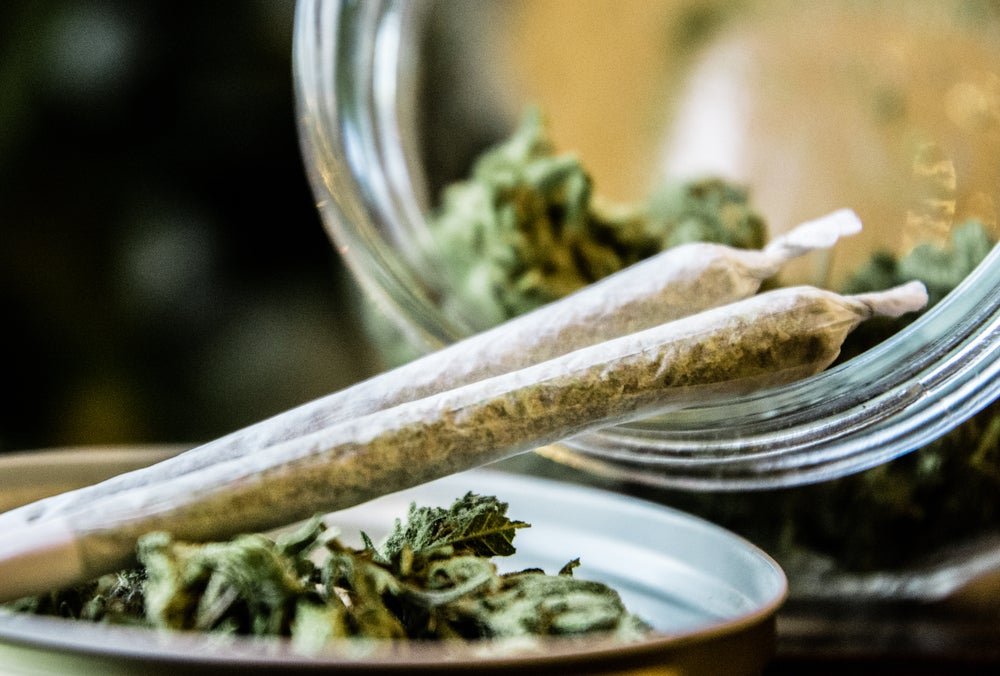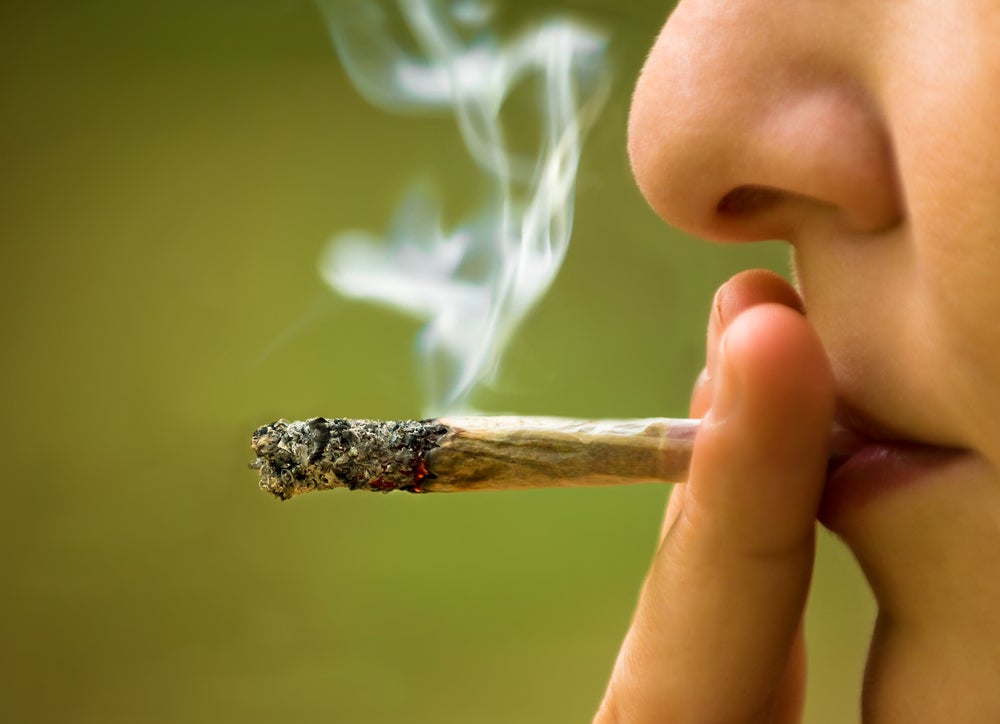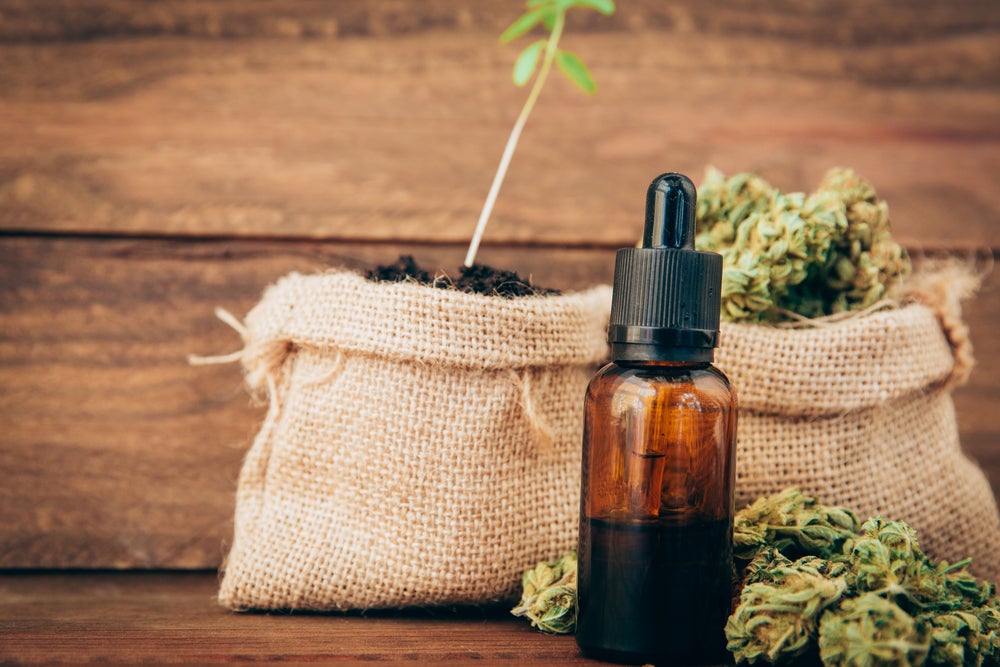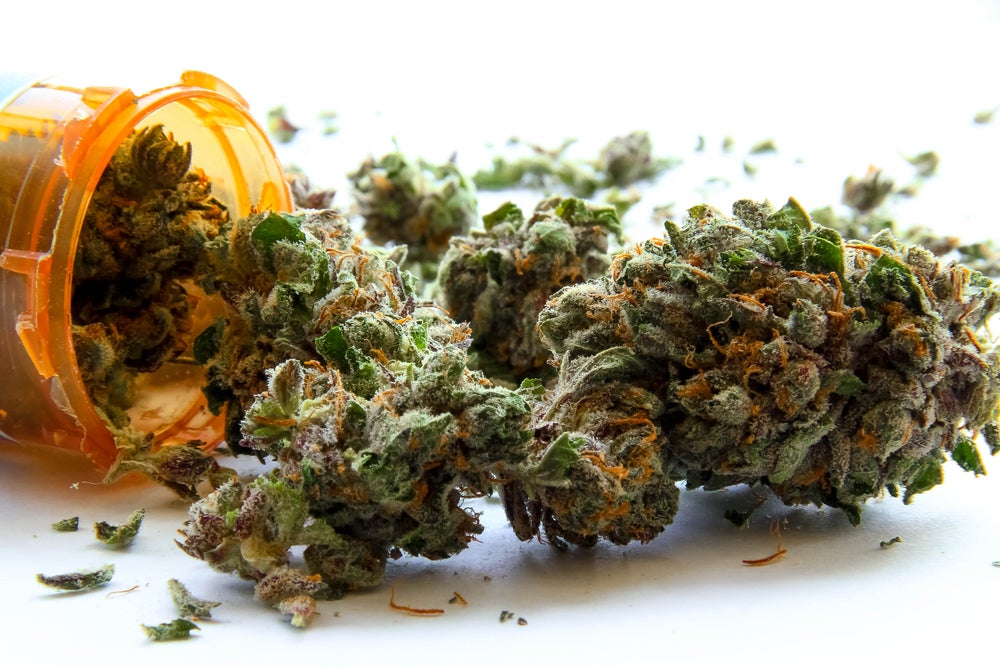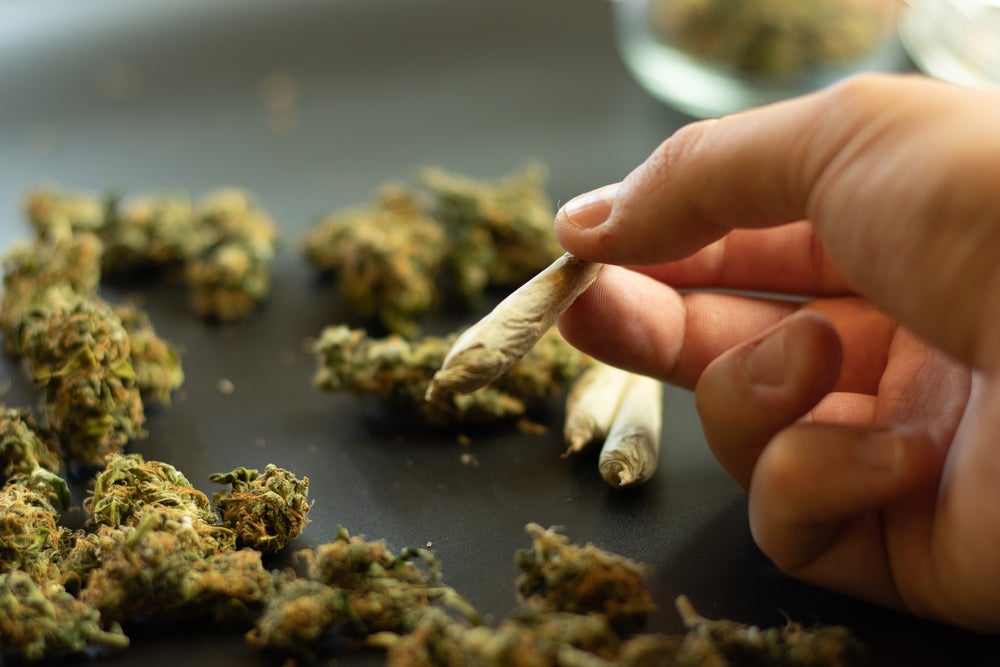Marijuana is a touchy subject. I know people who are completely against it and I know people who can’t function without it.
Personally, I don’t care if you do it or if you don’t, it’s your choice. The one thing I can tell you is that most of the people I know enjoy using marijuana as a sleep aid-my brother in law happens to be one of them. He’s one of those people who can take one hit and fall asleep just a little while after, but why does this happen? Let me fill you in on the effects of marijuana on sleep.
You may be interested in Sleepwalking and Things You Ought to Know
#1: Effects of Marijuana on Sleep
Marijuana has a number of effects on the human body. It can make you feel weightless, hungry, happy, sick, or in this case, sleepy. The main ingredient in pot is THC or tetrahydrocannabinol. This is the chemical that’s responsible for the psychological effects of marijuana. Our bodies naturally create cannabinoid chemicals, according to the National Institute on Drug Abuse, and the pot just puts it into overdrive essentially.
If you smoke pot to help you sleep, there are a number of health effects it has on your body. It can have an effect on your REM sleep, sleep patterns, cycle, apnea, and quality. Believe it or not, marijuana can actually help these things, resulting in a better sleep.
#2: Using Marijuana as a Sleep Aid
As I said before, my brother in law smokes to help him fall asleep if he’s in pain or if he just can’t seem to fall asleep. Depending on a person’s biochemistry, certain types of pot can have psychoactive results on them. So when you hear that some people end up being hyperactive after smoking rather than mellowing out, this is because of that biochemistry reaction to whatever was in the blend.
Back in 1973, a study was performed on a group of insomniacs. These people were given different doses of THC. These doses were found to significantly decrease the time it took to fall asleep. There was also improvement shown when it came to sleeping throughout the night.
If you are thinking of smoking a joint before bed to help you fall asleep quicker, you should know that there are many different strains of “bud” and they can all affect you differently.
It is suggested that you use an indica dominant strain. This will give you a mellow, body high, instead of making you hyper and disoriented.
#3: Effects of Marijuana on REM Sleep
The final stage of sleep for us is called REM or Rapid Eye Movement. This is the stage in which dreams occur. It’s not for certain as to why, but smoking before bed reduces REM sleep and reduces dreaming. Some say that it’s because of pot’s tendency to blunt dopamine response. Dopamine is what directs our attention and creates dreams.
If you suddenly stop smoking after doing it for a long period of time without having dreams or even having minimal dream episodes, your dreams are likely to come back with really angry with you. This is because smokers regain their sensitivity to dopamine, sometimes at a really unstable level.
My brother in law does not report having dreams while he is sleeping after smoking. If he does, he cannot remember them. I do, however, recall him telling me about some crazy dreams he was having after not smoking for a while before a surgery he needed. He was smoking almost every night for a month or so and he had to stop abruptly.
#4: Effects of Marijuana on Your Sleep Apnea
Sleep apnea is the disruption of breathing patterns during sleep. This is something that affects millions of people, making them really sleepy because they aren’t getting enough z’s. In 2002, a study was performed that suggests that the use of marijuana for sleep has the ability to suppress sleep apnea.
Sleep Apnea
Sleep apnea can cause someone to wake up many times throughout the night. If you aren’t getting enough sleep, you can be moody, suffer from headaches, your chance of accidents is increased, and there could be other health issues that come along with it.
Another study was performed on 17 participants over a 21 day period. This study measured the efficacy of a cannabinoid called “dronabinol”, which is a THC mimic. Improvement in sleep apnea were shown in 15 out of these 17 people. Another study showed an improvement in respiratory stability.
You may be interested in: CBD Oil VS Hemp Oil
#5: Effects of Marijuana on Your Sleep Cycle
As you may already know, there are 4 stages of sleep and REM that we go through. Each one of these stages play a different role in how we sleep. Let’s break them down.
Stage 1
This stage is the initial time it takes for us to actually fall asleep and it’s the time where the body transitions into a comfortable sleep. This stage is usually only active for 7 minute and if someone is experiencing pain or stress, this could take longer. Marijuana is best known for its sedative and relaxation effects, so it’s a no brainer that it would help you drift off to sleep quicker by relaxing you more.
Stage 2
In this stage, your eye movement stops and your brainwaves slow down. This puts you into a light sleep and you are more likely to be easily woken up. This stage seems to be the least affected by pot, but nobody knows for sure as to why.
Stages 3 and 4
These stages involve slow sleep waves. Since these stages are referred to as a single cycle, they seem to be the most restorative out of the four stages. This stage is also lengthened with the use of cannabis. This could be linked to an increased reduction of beta-amyloid, a plaque that is commonly associated with Alzheimer’s Disease and Dementia. Although more research needs to be done, which is tough due to the legality of pot, it still looks promising.
REM
In REM sleep, breathing is more rapid, your eyes twitch, and your limb muscles are temporarily paralyzed. When you smoke, your dreaming is reduced or stopped. You’re less likely to wake up from a dream, especially if you aren’t having them.
#6: Effects of Marijuana on Sleep Quality
Marijuana has the ability to do many things to your body. Your body has what’s called an “endocannabinoid system” which is what regulates sleep, along with some other things. Marijuana also has these chemicals, as aforementioned. So how does this all link together to help you?
Falling Asleep Easier
My brother in law can personally attest to this method. If he’s stressed or in pain, he smokes, but not much. Even one or two hits can instantly make him feel drowsy. Him and his girlfriend ditch the clothes, snuggle up in bed, have a few of those cliched laughs, and fall asleep quickly and easily.
Early research of marijuana shows that THC can reduce the time it takes for both healthy people and insomniacs to fall asleep. THC was found to ease falling asleep in a 2013 study of healthy individuals.
Longer & Deeper Sleep
Yup, my friend and brother-in-law can relate to this one too. The next morning, they always ask each other how they slept, and the answer is always the same, “Great.” They don’t find themselves waking up in the middle of the night, they don’t toss and turn as much, and they wake up feeling refreshed.
Early studies show that the use of THC or CBD can lead to an increase in sleep. One study showed that an increased dose of THC increased the amount of time spent asleep. As a word of warning, really high doses of THC can leave you with a hangover feeling, as if you drank all night and only got an hour of sleep.
When it comes to deeper sleeping, THC can increase the amount of slow-wave sleep, which is our deep sleep. Deep sleep plays a huge role in the restoration process that we go through during sleep, so getting that deep sleep is essential to our health and moods.
You may want to read: What Happens When You Wake A Sleepwalker And How To Do So
#7: Smoking Marijuana to Help Sleep
Smoking marijuana to help sleep is something that a lot of people do, more than you know actually. Even though it’s illegal in most states, people still do it regularly. My brother can smoke it all day and somehow still function. My friend takes one hit and she’s down for the count. But, smoking isn’t only beneficial to sleeping, it’s also pain relieving.
Marijuana Smoking
Research shows that smoking can help people who suffer from chronic nerve pain. These people report feeling less pain and sleeping better. A clinical trial compared placebo with three different types of cannabis. 21 men and women with an average age of 45 who suffered from chronic nerve pain.
Each person was evaluated for 2 months, using all 4 strengths of cannabis and the placebo. They were rotated through the strengths and they didn’t know which ones they were using. A single puff was taken and inhaled for 10 seconds three times a day for five days. The patients were then put on a pain scale of 10 being the highest. Those who were on the placebo put their pain at a 6.1 and those who were on the highest dose reduced their pain to 5.4.
Any reduction in pain is a success. If your pain is keeping you awake, this is good evidence that cannabis can be a great pain reliever, which can help you sleep better at night. If I’m in pain, I sleep like crap. If I smoke, my pain goes away, it’s great.
Conclusion
As you can see, there are many clinical trials, research papers, and studies that show marijuana has some positive effects on your body. The only reason you would have a negative effect is if you didn’t use to the blend, it was too high, you smoked too much, or you got a bad batch, which I can personally relate to.
If you are frequently in pain and can’t manage it or you just need to sleep better, cannabis is the most natural way to go. Forget the sleeping pills and forget the drinking. If you’re still absolutely against the idea of smoking weed to fall asleep, no worries. Grab yourself a comfortable mattress, snuggle up next to your partner, and drift off as best you can.
As always, if you enjoyed this article or have any questions for us, drop us a comment and share the heck out of it if you’re a believer.
Photo credit: Craig F Scott/Shutterstock; Mitch M/Shutterstock; Stanimir G.Stoev/Shutterstock; VictoriaArt/Shutterstock; Atomazul/Shutterstock; Postmodern Studio/Shutterstock
Frequently Asked Questions
Can marijuana edibles help with sleep?
Although many studies have shown that marijuana can help you sleep longer and better, not everyone wants to roll a joint or stuff it into a pipe and smoke it. After all, smoke is smoke, which is not good for your lungs. The good news is, marijuana comes in a variety of forms, including edibles, capsules and oil. An edible can be a gummie or even a cookie that has marijuana baked into it, and oil can be dropped under your tongue and easily absorbed into your bloodstream. Do these forms work as well as smoking? Apparently, they do. In the scientific journal Sleep Medicine Reviews, it was reported that the use of smoked and edible cannabis can reduce REM sleep and help with falling asleep.
Does marijuana help with pain?
Pain — few people go through life without experiencing some form of pain from time to time. However, chronic pain or periodic pain from an injury or back, neck, joint and head pain, is the number one reason people say they have trouble falling asleep and staying asleep. While taking a lot of painkillers will take the pain away and allow you to sleep, prolonged use of painkillers has been shown to have negative effects on your body, including stomach bleeding and kidney issues. The good news is that the THC in marijuana can help decrease pain, anxiety, tension and nausea. As well, CBD — a cannabidiol that is an active ingredient in marijuana and is derived from the hemp plant, does not cause a high and is not addictive — reduces inflammation, which could provide pain relief from autoimmune diseases like rheumatoid arthritis. So, while THC seems to have a greater effect on the way the mind perceives pain, CBD may work to ease pain at the local source. And, if your pain is greatly reduced, then you will sleep better and for longer.
Is marijuana legal in the US?
The recreational use of marijuana is illegal in the United States. Marijuana is classified at the federal level as a Schedule I drug under the Controlled Substances Act, and cultivating, distributing and possessing marijuana violates federal drug laws. However, in 1996, California became the first state to legalize the use of medical cannabis and since then, the medical use of cannabis has been legalized in 39 states and the District of Columbia. Other states have regulations governing the amount of THC and CBD allowed in medical cannabis. If you suffer from pain that interferes with your ability to fall sleep or stay asleep, check the laws in your state and then ask your doctor if he or she can prescribe medical marijuana.
